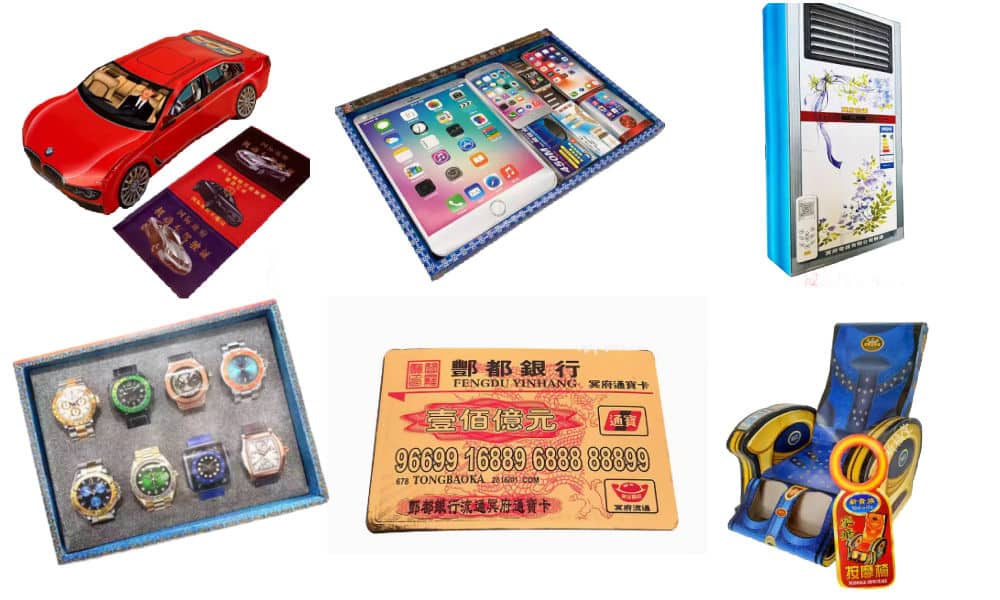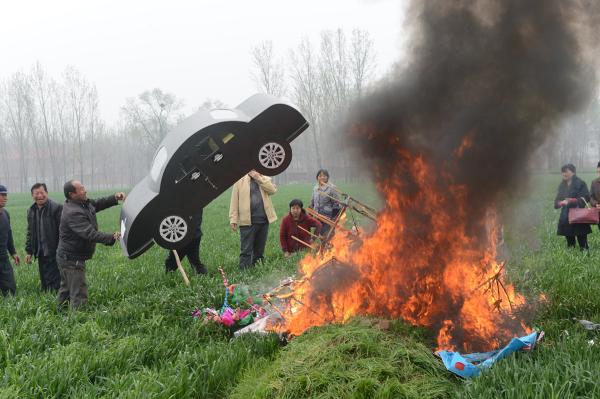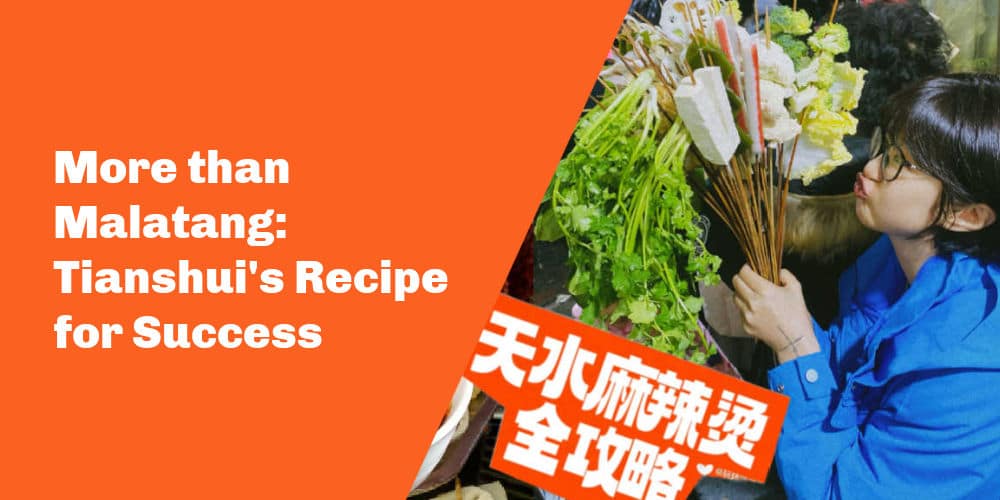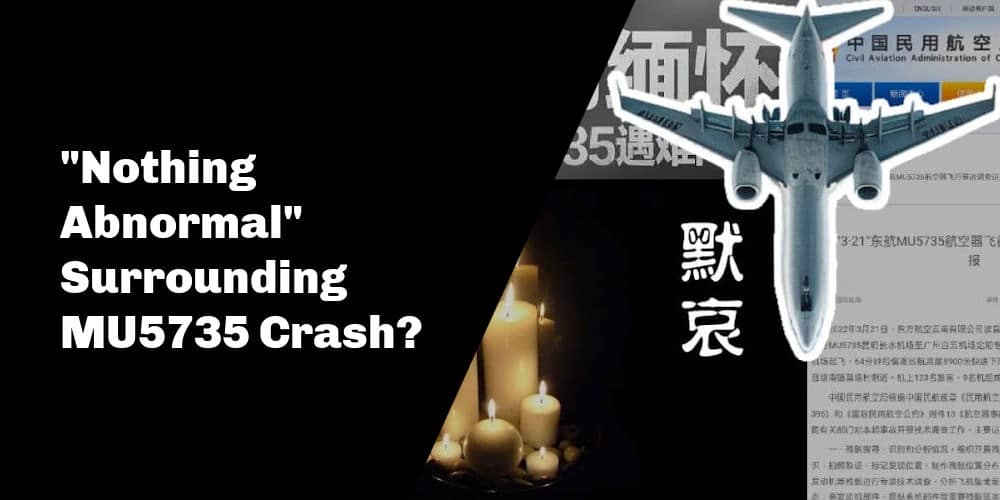Featured
Weibo Watch: Burning BMWs
About Qingming, nitpicking, Oppenheimer in Japan, other trends, and how we’re all burning BMWs in our own different ways.
Published
1 month agoon

PREMIUM NEWSLETTER | ISSUE #26
This week’s newsletter:
◼︎ 1. Editor’s Note – Burning BMWs
◼︎ 2. What’s Been Trending – A closer look at the featured stories
◼︎ 3. What More to Know – Five bit-sized trends
◼︎ 4. What’s the Drama – Top TV to watch
◼︎ 5. What’s Noteworthy – For Yiwu, the Olympic Games have begun
◼︎ 6. What’s Popular – A Chinese song goes viral on TikTok
◼︎ 7. What’s Memorable – Which language does Ma Ying-jeou speak?
◼︎ 8. Weibo Word of the Week – Nitpicking
Dear Reader,
Expensive watches, cigarettes, jewelry, and liquor – there’s a wide array of offerings for ancestors beyond ‘ghost money’ and food. This week marks China’s Qingming Festival (清明节), also known as Tomb-Sweeping Day, a special time to honor family ancestors by visiting graves, making offerings, and burning spirit money and other paper tributes.
In this age of e-commerce, the ancient ritual of paper offerings has undergone some changes, becoming more diverse and extravagant. Thanks to platforms like Taobao, people now have instant access to a variety of ritual paper gifts. By burning them, it’s believed these offerings are sent to the afterlife, hopefully pleasing the ancestors.
As symbols of power and status evolve, gold and silver paper alone are no longer enough in the 21st century. Nowadays, one can purchase paper replicas of golden credit cards, iPhones, smartwatches, massage chairs, designer bags, rice cookers, furniture, air conditioners, refrigerators, bodyguard ‘puppets,’ and even BMW cars.

Examples of the various paper offerings available on Taobao: red BMW car, tablets & smartphones, air conditioner, luxury watches, creditcard, massage chair.
Some take it a step further and create entire paper replicas of two-story villas or palaces to honor their ancestors (see video). As many cities already grapple with air quality issues and smog, these customs have sparked discussions for years, with some places prohibiting burning incense and paper during Qingming.

People set up entire paper replicas of two-story villas to honor their ancestors (image circulating on Weibo).
This year, there’s been increased debate surrounding the burning of paper offerings during Qingming. Authorities in Jiangsu’s Nantong, one of China’s fastest-aging cities, recently announced a city-wide ban on the production and sales of paper effigies due to concerns over air pollution and fire safety risks.
The ban has sparked discussions across Chinese social media, particularly because Nantong authorities referred to the custom of burning paper as “feudal superstition” (“封建迷信”).
In China, the practice of making paper replicas of worldly items and ‘sending’ them to deceased family members through fire and smoke is at least a thousand years old. It’s a spiritual aspect of daily life that has become more than tradition alone – it’s deeply ingrained in many families’ lives.1

Image by The Paper, 2015: link.
The numerous comments on Weibo this week underscore how significant this topic is for many people. Some threads received over 179,000 likes and over 11,000 replies.
Although opinions vary, it’s evident that most people feel Nantong’s ban was too stringent and that they should be more cautious about banning centuries-old traditions. Some sarcastic comments suggest if they care so much about safety, they should focus more on food regulations instead.
Others note that the city has many Christian churches where people can honor their religion as they please, and that Chinese traditional folk beliefs should not be diminished or looked down upon compared to these Western-based religions.
The popular Weibo account “Xu Ji Observation” (@徐记观察), known for promoting positive online content and the “mass line,” suggested that while the practice of burning entire paper houses reaching two stories high should be abandoned, there should still be room for people to burn smaller paper offerings. There shouldn’t be a “one-size-fits-all approach,” they wrote.
Every year, hundreds of tons of paper are burned in Chinese cities. Besides the billions of yuan spent on paper itself, there are also considerable costs in terms of time and labor to clean up the ash piles.
Ultimately, the question revolves around what is considered ‘extravagant,’ ‘silly,’ or ‘superstitious,’ and where the line is drawn between tradition and absurdity. Some draw the line at anything taller than one story. Others believe anything beyond paper money alone is unnecessarily harmful to the environment, and everyone burning paper items should consider the negative impact.
What’s striking about these discussions is that while they focus on things literally going up in smoke, they also reflect on the world around us. After all, when people are driving around in huge SUVs, consuming plastics, wasting water, constantly buying new gadgets and laptops, and indulging in fast fashion, it seems odd to fuss over sacrificing a paper car for a beloved grandparent. In the end, we’re all burning BMWs in our own different ways. These discussions about where we draw the line, whether in our current world or in our rituals for the afterlife, will only become more prominent over time.
Despite all the discussions and controversy surrounding this Qingming festival, Nantong’s ban has been upheld. Officials argue that instead of elaborate paper items like puppets, purses, and palaces, ancestors would be just as pleased with flowers on their graves. Though less flashy, it’s much better for the environment.
Best,
Manya (@manyapan)
What’s Been Trending

1: China’s New City Marketing | Since the early post-pandemic days, Chinese cities have stepped up their game to attract more tourists. The dynamics of Chinese social media make it possible for smaller, lesser-known destinations to gain overnight fame as a ‘celebrity city.’ Now, it’s Tianshui’s turn to shine with its special take on malatang. City marketing in China will never be the same again. Read all about it here👇🏼

2: Micro Drama, Major Profit | Closely intertwined with the Chinese social media landscape and the fast-paced online entertainment scene, micro dramas have emerged as an immensely popular way to enjoy dramas in bite-sized portions. With their short-format style, these dramas have become big business, leading Chinese production studios to compete and rush to create the next ‘mini’ hit.

3: Bolt from the Blue | Two years after the tragic crash of MU5735, a new report on the ongoing investigation into the cause of the plane crash has been released. According to China’s Civil Aviation Administration, the report has found “no abnormalities” in the circumstances surrounding the MU5735 incident. Even after two years since the plane nosedived mid-air, people are still awaiting clear answers on what caused the devastating crash in Guangxi, which claimed the lives of all 132 people on board.
What More to Know
◼︎ ⛑️ Taiwan Earthquake | After the 7.3-magnitude earthquake struck the east coast of Taiwan on April 3, expressions of solidarity and support for “our Taiwan compatriots” flooded Chinese social media. However, amidst these sentiments, there were also instances of people mocking the disaster, which claimed the lives of at least 9 people and left over 1000 injured. Weibo management cautioned users against posting content that “lacked empathy” in the wake of the devastating earthquake. Following the quake, Beijing’s Taiwan Affairs Office of the State Council promptly offered disaster assistance, but Taiwan’s Mainland Affairs Council declined, stating that assistance was unnecessary. However, the decision by the Taipei government to accept Japan’s aid, specifically for using hi-tech equipment to detect signs of life, was criticized by netizens. Some nationalistic bloggers even commented that this would be an opportune time to “reunify with the motherland.”
◼︎ 😢 Ma Ying-Jeou’s ‘Voyage of Trust’ | At the invitation of Beijing, former Taiwanese President Ma Ying-jeou is currently visiting the Chinese mainland. His 11-day trip to China began last Monday. It is anticipated that he will also hold a meeting with Chinese leader Xi Jinping next week. Accompanying Ma on this visit is a group of Taiwanese students, and the focus is on cultural exchange, labeled as ‘a voyage of trust.’ Last year, Ma made history as the first former Taiwanese leader to visit China. Given the escalating tensions over Taiwan’s status, his current visit holds particular significance. Serving as president from 2008 to 2016, Ma emphasizes peace and connectivity, according to his own statements. On Chinese social media, there’s much discussion about Ma’s tendency to become emotional quickly. He shed tears last year while visiting his family’s grave in Hunan, and this year, he displayed his emotional side on multiple occasions once again. Some people believe it’s inappropriate for a (former) leader to be so emotionally expressive. As one Weibo blogger questioned, “Ma Ying-jeou cries from dawn till night, from night till dawn. Can crying bring about the reunification with Taiwan?”
◼︎ 🥀 Chongqing Mother Kills Toddler Son | A video circulating on Chinese social media this week has shocked viewers, depicting a 37-year-old mother throwing her 3-year-old son out of a window from a 22nd-floor apartment in Chongqing’s Banan District. The tragic incident occurred on the morning of April 1st. Police reports indicate that prior to this, the woman also attacked her mother-in-law with a knife. While investigations are ongoing, there is speculation online regarding the mother’s mental state. Commentator Hu Xijin emphasized in a recent column the urgent need for increased awareness and support for mental health issues, stressing that it could be a matter of life or death. This case also evokes memories of the “Chongqing Siblings’ Falling Case” (重庆姐弟坠亡案) in 2020, where two siblings (a girl, 2, and a boy, 1) from Chongqing were killed after being thrown from a high-rise apartment window on the 15th floor. Their father and his girlfriend, who allegedly couldn’t accept the children from his previous marriage, were both sentenced to death for their crime and executed on January 31st of this year by lethal injection.
◼︎ 🎬 Oppenheimer in Japan | Japanese filmgoers’ mixed and emotional reactions to the American Oscar-winning movie “Oppenheimer” sparked discussions on Chinese social media this week. The movie finally hit Japanese cinemas on March 29, eight months after its initial premiere, which drew controversy in Japan due to the humorous marketing of the film alongside the release of Barbie (which led to the creation of the ‘Barbenheimer’ meme). The movie centers around the American ‘father of the atom bomb,’ Oppenheimer, and the events leading to the devastating bombing of Hiroshima and Nagasaki. It has faced criticism in Japan for being America-centric and failing to fully depict the horror of nuclear weapons. Chinese netizens showed little understanding for the mixed feelings about the movie in Japan. With the history of the Sino-Japanese War still very much alive in China today, some people wonder why many Japanese people do not have “mixed feelings” about paying respect to the war dead at the Tokyo Yasukuni Shrine. “They’re playing the victim again,” various commenters wrote. (For Dutch-speaking readers, I discussed this topic on Dutch Radio 1; listen to the interview here.)
◼︎ 🇺🇸 Yellen Again | U.S. Treasury Secretary Janet Yellen is visiting China for the second time since summer this week, from April 4th to 9th. Yellen’s itinerary includes meetings with top Chinese officials in both Guangzhou and Beijing, aiming to address ongoing bilateral tensions and manage trade relations between the two countries. Apart from engagements with officials, Yellen will also meet with students and business leaders during her visit. This trip follows a recent phone call between President Biden and Chinese leader Xi Jinping. While many social media discussions focus on the key topics of Yellen’s visit, there is also curiosity among netizens about whether or not she will eat ‘magic mushrooms’ again during this trip. At the time of Yellen’s last visit in 2023, she went viral for dining at a Yunnan restaurant in Beijing, where she was served mushrooms that had hallucinogenic properties (read here).
What’s the Drama

Given the current surge in popularity of Chinese short dramas, let’s introduce you to one of the hottest mini series of the moment: “Fortune Writer” (执笔, zhíbǐ) [“Writing”]. It’s a fantasy costume drama centered around Su Yunqi (苏云绮), who discovers she’s the villainous female lead in a novel—no happy endings for her. Unwilling to accept her fate, Su embarks on a mission to rewrite her life. Released on March 20, this short drama has a total of 24 episodes lasting about 15 minutes each—slightly longer than other popular ‘micro-dramas,’ some of which are only 2-3 minutes per episode nowadays.
Noteworthy:
▶️ This drama’s script is adapted from a series of stories shared on Zhihu’s short story platform, Yanyan Gushi (知乎盐言故事), by the author Lin Yannian (林言年), who also directed the drama.
▶️ In addition to the micro-drama and short story, there is also a podcast available, so fans of this series can enjoy reading, watching, and listening.
▶️ The widespread acclaim for “Fortune Writer” is seen as a sign that the Yanyan Gushi short story app might just be the next goldmine for the Chinese drama and film industry, as short story dramatization is becoming increasingly popular. To date, nearly a hundred stories or series published on Yanyan Gushi have been authorized for film and television adaptations.
You can watch Fortune Writer online here (no English subtitles), or on WeTV here with English subtitles.
What’s Noteworthy

The countdown to the Summer Olympic Games in Paris has begun. Even though we still have some 112 days to go before July 26, there is one city in China that is already fully immersed in the Olympic atmosphere. That city is Yiwu in Zhejiang province, where local companies have already exported $76 million worth of Olympic-related products to France within an eight-week timeframe. From shirts, scarves, and caps for sports fans to trophies and medals for athletes, Yiwu is manufacturing a diverse array of clothing, fan accessories, and other Olympic merchandise. Local businesses are currently operating at full capacity, with many working overtime to fulfill orders.
Yiwu, Zhejiang, is renowned as China’s largest “small commodities city” and, with its expansive International Trade City, serves as the global hub for Christmas merchandise. Following a report by CCTV on Yiwu’s soaring Olympic-related export sales, netizens have expressed pride in Yiwu’s entrepreneurial spirit: “I really admire the people of Yiwu for how fast they are in seizing business opportunities. Time and time again, they make accurate predictions and receive massive orders. Regardless of where the Olympics are held, it’s always Yiwu laughing all the way to the bank!” Others remarked, “We’re an export country, after all.”
What’s Popular

If you’re an avid TikTok user, you’ve likely come across numerous videos of users lip-syncing to a Chinese song. The song, titled “This Life’s Fate” (今生缘), has evolved into a social media challenge where TikTokers strive to deliver a flawless performance without necessarily understanding its meaning (watch video here). If you’re curious to learn more about the song behind this trend and what it actually means, continue reading here 👇.
What’s Memorable

This pick from our archive takes us back to last year’s trip to the mainland by former Taiwan leader Ma Ying-jeou. One aspect of his trip received relatively little attention in the media, even though it generated some buzz among Chinese netizens: Ma’s way of speaking Chinese. What language did he use during his 10-minute speech at Hunan University and while he was paying repects at the graves of his ancestors? Jin Luo explains.👇
Weibo Word of the Week

“Flashlight Evaluation” | Our Weibo Word of the Week is “Flashlight Damage Assessment” or “Portable Lamp Property” (tídēng dìngsǔn 提灯定损), shortened to “Flashlight Evaluation”, a term recently coined by Chinese netizens in response to a story where a landlord conducted a post-lease property inspection by carrying around a large lamp, meticulously shining it into every corner and inspecting every inch of the apartment.
In this context, “Flashlight Evaluation” actually means ‘nitpicking’.
The incident that gave rise to this term went viral on March 28, 2024, after a woman from Shangrao’s Yushan County posted a 10-minute video depicting her landlord inspecting the apartment for damage using a large portable lamp as she prepared to move out. After scrutinizing the property, which the landlord himself constructed, he reportedly compiled a list of all the (minor) damages he found and demanded over 10,000 yuan ($1380) in compensation from the tenant – a substantial sum, particularly considering the monthly rent was only 1200 yuan ($165) and the tenant resided there for just 22 days.
Following the incident’s online explosion, local authorities in Yushan County established an investigation team to probe the matter. According to the latest reports, the landlord has now refunded the tenant’s money. On top of that, he has been detained for throwing bricks at people. I bet he’s fun at parties.
This is an on-site version of the Weibo Watch newsletter by What’s on Weibo. Missed last week’s newsletter? Find it here. If you are already subscribed to What’s on Weibo but are not yet receiving this newsletter in your inbox, please contact us directly to let us know.
Manya Koetse is the founder and editor-in-chief of whatsonweibo.com. She is a writer, public speaker, and researcher (Sinologist, MPhil) on social trends, digital developments, and new media in an ever-changing China, with a focus on Chinese society, pop culture, and gender issues. She shares her love for hotpot on hotpotambassador.com. Contact at manya@whatsonweibo.com, or follow on Twitter.

Also Read
China Arts & Entertainment
Singing Competition or Patriotic Fight? Hunan TV’s ‘Singer 2024’ Stirs Nationalistic Sentiments
“I’m in Zibo eating barbecue, I really don’t feel like listening to Alicia Keys.” Hunan TV’s ‘Singer 2024’ has set off a new wave of national pride in China’s music and performers.
Published
19 mins agoon
May 17, 2024By
Ruixin Zhang
Besides memes and jokes, Hunan TV’s ‘Singer 2024’ has set off a new wave of national pride in China’s music and performers on Chinese social media.
In May, while the whole of Europe was gripped by the Eurovision Song Contest frenzy, Chinese audiences were eagerly anticipating the return of their own beloved singing competition, Singer 2024 (@湖南卫视歌手), formerly known as I Am a Singer (我是歌手).
The show, introduced from South Korea’s MBC Television and popular in China since 2013, only features professional singers who have already made a name for themselves.
Rather than watching unknown aspiring singers who are hoping to be discovered in many singing competitions, such as Sing! China, Singer 2024 gives audiences a show filled with professional and often stunning show performances by established names in the entertainment industry.
Since 2013, renowned singers from China and abroad have appeared on the show, including Chinese vocalist Tan Jing (谭晶), British pop singer Jessie J, and the late Hong Kong pop diva Coco Lee. However, no season managed to create as many waves as the 2024 season did, dominating all social media trending topics overnight.
So, what exactly happened?
COMPETING WITH FOREIGNERS
“The difference between the Grammys and the Strawberry Musical Festival”
In early May, the pre-show promotion of Singer 2024 was already buzzing on Chinese social media after a list of featured singers appeared on Weibo, including big names such as American singer-songwriter Bruno Mars, Korean-New Zealand singer Rosé from Blackpink, and Japanese diva LiSA.
Although Singer previously had many foreign singers on the show, this international celebrity lineup still caused a stir.
On the day of the first episode, only two foreign singers were announced to appear on the show: young Moroccan-Canadian singer Faouzia and the Grammy-nominated American singer-songwriter Chanté Moore. The other contestants were all Chinese singers who are already well-known among Chinese audiences. Because many people were unfamiliar with the two foreign singers, they joked that the winner of this season was already set in stone; surely it would be the famous Chinese singer Na Ying (那英), known for her beautiful voice.
However, that first episode surprised everyone as the two foreign singers, Faouzia and Chanté Moore, showed outstanding vocal skills. This not only startled many viewers but also made the Chinese contestants uneasy. Several experienced Chinese singers apparently were so unnerved after watching Faouzia and Chanté Moore’s performance that their voices trembled when singing.

Since the show was broadcast live – without post-production editing or autotune – audiences got to hear the actual vocal capabilities and see performers’ genuine reactions. It seemed undeniable that the foreign contestants did much better in terms of vocals and stage presence than the Chinese ones. Some online commenters even said that the gap between Chinese and foreign singers’ levels was like “the difference between the Grammys and the Strawberry Musical Festival” [a local Chinese music festival].
Chinese online influencer Yongkai (@陈咏开165) shared screenshots of Chanté Moore’s backstage reactions during the show. The American celebrity seemed puzzled when hearing the somewhat underwhelming performance by Chinese singer Yang Chenglin (楊丞琳), and she appeared much more positive when Na Ying sang.

This noteworthy scene, coupled with Chanté’s comments during an interview saying that she thought the Chinese production team had invited her on the show to be a judge, turned the entire show into a display of foreign singers outshining the Chinese contestants.
By the end of the first episode, Chanté Moore and Faouzia unsurprisingly ranked first and second, with Na Ying in third place.

After the show, some online commenters jokingly pointed out that Na Ying, being of Manchu descent like the rulers of China during the Qing Dynasty, showed some similarities to Empress Dowager Cixi’s defiance against Western colonizers in the way she “single-handedly took up against on foreigners” on the show.
They humorously turned Na Ying’s expressions into memes resembling Empress Dowager Cixi from an old Chinese TV show, with captions like “I want the foreigners dead” (“我要洋人死”).

Others suggested finding better Chinese singers for the show who could compete with Faouzia and Moore.
“SINGING WELL” CULTURALLY COLONIZED?
“I’m in Zibo eating BBQ, I really don’t want to listen to Alicia Keys.”
Initially, discussions about the show were light-hearted and humorous, until some netizens who couldn’t appreciate the jokes began to dampen the mood and made online discussions more serious.
Zou Xiaoying (@邹小樱), a music critic with nearly two million followers, posted on social media after the show, stating that he would have never voted for Chanté Moore or Faouzia. Not only did Zou question their vocal talent, he also wondered if the aesthetic of Chinese listeners had been influenced by Western music taste to such an extent that it has been “culturally colonized” (“文化殖民”). Meanwhile, he praised the members of Beijing rock band Second Hand Rose as “national heroes” (“民族英雄”).
He wrote:
If I had three votes for the first episode of “Singer 2024,” I’d vote for Second Hand Rose, Na Ying, and Silence Wang [note: Chinese singer-songwriter and record producer Wang Sushuang 汪苏泷]. The reason I wouldn’t vote for Chanté Moore or Faouzia is because — do they actually sing so well?
Has our definition of “singing well” perhaps been colonized? Just as our modern-day use of Chinese has little to do with our classical Chinese poems, with the foundation of modern Chinese actually being translations from the 20th century, is this also a form of ‘cultural colonization’?
You must think I’m talking nonsense again. But when I listen to Chanté Moore singing “If I Ain’t Got You,” I find it too boring. I know her singing is “good,” but this “good” has nothing to do with me. If, for Chinese listeners, Chanté Moore’s “good” is the standard, then is that what we in the music industry should be working towards? Isn’t that funny? When you open QQ Music or NetEase Cloud Music, and it recommends these songs to you every day, won’t you be convinced to practice again?
Of course, I know Chanté Moore is in good shape, very relaxed. Actually all of the Chinese singers tonight were very nervous. Yang Chenglin (杨丞琳) was nervous, Na Ying was also nervous. Even a seemingly carefree band like Second Hand Rose, if you listened to the introduction of their song, [you’ll find] they were so nervous that Yao Lan, supposedly “China’s No.1 Guitarist”, was so nervous that he hit the wrong note. It was not even a fast-paced solo (…), how nervous could he be? When everyone’s so tense, the confidence of Chanté Moore and Faouzia is indeed something that East Asia can’t match. In East-Asian [entertainment] circles, represented by China/Japan/Korea, our different cultural habits, upbringing, and ethnic characteristics have made it so that we don’t possess these kinds of singing abilities, even including our ways of emotional expression. I don’t know from which season it started with Singer – and if it’s some kind of Catfish Effect (鲶鱼效应 ) – that they brought international singers with different cultural backgrounds into the competition. But this isn’t the Olympics, it’s not like Liu Xiang [刘翔, Chine gold medal hurdler] is going to defeat opponents from the United States or Cuba. “I’m in Zibo eating barbecue, I really don’t feel like Alicia Keys.” (This line is not mine, I stole it from my WeChat friend).
Because of this, I find Second Hand Rose even more rare and precious. It’s just like I used to love asking: If you could only recommend one Chinese band to your foreign friends, which one would you recommend? Some say it’s New Pants (新裤子), some say it’s Omnipotent Youth Society, but my answer will always be Second Hand Rose. ‘The drama of Monkey King is a national treasure,’ its light will always shine. Facing the gunfire of Western powers, Second Hand Rose is standing on the frontline, they are our national heroes. Indeed, the band itself was nervous, (..), but when Chanté Moore goes off like a singing dolphin, we are fortunate to have Second Hand Rose at the frontline; the Chinese sons and daughters are building the Great Wall of Music of flesh and blood.
Because of this, I find Second Hand Rose even more rare and precious. It’s just like I used to love asking: If you could only recommend one Chinese band to your foreign friends, which one would you recommend? Some say it’s New Pants (新裤子), some say it’s Omnipotent Youth Society, but my answer will always be Second Hand Rose. ‘The drama of Monkey King is a national treasure,’ its light will always shine. Facing the gunfire of Western powers, Second Hand Rose is standing on the frontline, they are our national heroes. Indeed, the band itself was nervous, (..), but when Chanté Moore goes off like a singing dolphin, we are fortunate to have Second Hand Rose at the frontline; the Chinese sons and daughters are building the Great Wall of Music of flesh and blood.
Anyway, no matter if they’re strong or not, I would never vote for the foreigner.
The comment about ‘I’m in Zibo eating barbecue, I really don’t feel like [listening to] Alicia Keys’ refers to the craze surrounding China’s ‘BBQ town’ Zibo. In Zibo, Chinese visitors like to sing, drink beer, and enjoy food together; it’s a simple and modest way of appreciating life and music, which contrasts with slick and smooth American or foreign styles of performing and singing.
Whether Zou’s criticism was for attention or genuine sentiment, it shifted the focus of the discussion from music to patriotism.
CHINESE SINGERS WITH MILITARISTIC UNDERTONES
“I volunteer to join the battle”
Amidst all this, some netizens, easily swayed by nationalist sentiments, began to seek help from the “national team” (国家队) of singers — musicians employed by national-level arts troupes — to “bring glory to the nation” and teach the foreigners a lesson. Some even questioned the intentions of the Singer 2024 TV show in inviting foreign singers to participate.
On May 12th, renowned Chinese singer and philanthropist Han Hong (韩红) posted on Weibo, fueling a wave of sentiment and support. In her post, Han Hong declared, “I am Chinese singer Han Hong, and I volunteer to join the battle,” tagging the production team of the TV show. Her invitation to join the battle quickly went viral.

Han Hong meme: “Who called for me?”
Han Hong has significant influence in the Chinese music industry and society as a whole. Her usual serious demeanor and avoidance of internet pop culture made netizens unsure whether she was joking or serious. Nevertheless, regardless of her intentions, a group of well-known singers began to volunteer via Weibo, emphasizing their identity as “Chinese singers” and using phrases with strong militaristic undertones like “fighting for the country” and “answering the call.”
Although many enjoyed this new wave of national pride in Chinese music and performers, some netizens criticized the trend of transforming an entertainment show into a nationalistic competition.
Film critic He Xiaoqin (何小沁) stated, “It’s okay to take the Qing-Dynasty-fighting-foreigners comparison as a joke, but taking it too seriously in today’s context is absurd.”
Others expressed fatigue with how quickly topics on Chinese internet platforms escalate to patriotic sentiments. To bring the focus back to entertainment, they turned “I volunteer to join the battle” (#我请战#) into a new internet catchphrase.
The production team of “Singers” released a statement on Weibo, thanking all the singers for their self-recommendations. They emphasized the show’s rigorous competitive structure and clarified that it is not about “winning” but about the love of music.
By Ruixin Zhang, edited with further input by Manya Koetse
Independently reporting China trends for over a decade. Like what we do? Support us and get the story behind the hashtag by subscribing:
Spotted a mistake or want to add something? Please let us know in comments below or email us. First-time commenters, please be patient – we will have to manually approve your comment before it appears.
©2024 Whatsonweibo. All rights reserved. Do not reproduce our content without permission – you can contact us at info@whatsonweibo.com.
China Insight
The Tragic Story of “Fat Cat”: How a Chinese Gamer’s Suicide Went Viral
The story of ‘Fat Cat’ has become a hot topic in China, sparking widespread sympathy and discussions online.
Published
1 week agoon
May 9, 2024
The tragic story behind the recent suicide of a 21-year-old Chinese gamer nicknamed ‘Fat Cat’ has become a major topic of discussion on Chinese social media, touching upon broader societal issues from unfair gender dynamics to businesses taking advantage of grieving internet users.
The story of a 21-year-old Chinese gamer from Hunan who committed suicide has gone completely viral on Weibo and beyond this week, generating many discussions.
In late April of this year, the young man nicknamed ‘Fat Cat’ (胖猫 Pàng Māo, literally fat or chubby cat), tragically ended his life by jumping into the river near the Chongqing Yangtze River Bridge (重庆长江大桥) following a breakup with his girlfriend. By now, the incident has come to be known as the “Fat Cat Jumping Into the River Incident” (胖猫跳江事件).
News of his suicide soon made its rounds on the internet, and some bloggers started looking into what was behind the story. The man’s sister also spoke out through online channels, and numerous chat records between the young man and his girlfriend emerged online.
One aspect of his story that gained traction in early May is the revelation that the man had invested all his resources into the relationship. Allegedly, he made significant financial sacrifices, giving his girlfriend over 510,000 RMB (approximately 71,000 USD) throughout their relationship, in a time frame of two years.
When his girlfriend ended the relationship, despite all of his efforts, he was devastated and took his own life.
The story was picked up by various Chinese media outlets, and prominent social and political commentator Hu Xijin also wrote a post about Fat Cat, stating the sad story had made him tear up.
As the news spread, it sparked a multitude of hashtags on Weibo, with thousands of netizens pouring out their thoughts and emotions in response to the story.
Playing Games for Love
The main part of this story that is triggering online discussions is how ‘Fat Cat,’ a young man who possessed virtually nothing, managed to provide his girlfriend, who was six years older, with such a significant amount of money – and why he was willing to sacrifice so much in order to do so.
The young man reportedly was able to make money by playing video games, specifically by being a so-called ‘booster’ by playing with others and helping them get to a higher level in multiplayer online battle games.
According to his sister, he started working as a ‘professional’ video gamer as a means of generating money to satisfy his girlfriend, who allegedly always demanded more.
He registered a total of 36 accounts to receive orders to play online games, making 20 yuan per game (about $2.80). Because this consumed all of his time, he barely went out anymore and his social life was dead.
In order to save more money, he tried to keep his own expenses as low as possible, and would only get takeout food for himself for no more than 10 yuan ($1,4). His online avatar was an image of a cat saying “I don’t want to eat vegetables, I want to eat McDonald’s.”

The woman in question who he made so many sacrifices for is named Tan Zhu (谭竹), and she soon became the topic of public scrutiny. In one screenshot of a chat conversation between Tan and her boyfriend that leaked online, she claimed she needed money for various things. The two had agreed to get married later in this year.
Despite of this, she still broke up with him, driving him to jump off the bridge after transferring his remaining 66,000 RMB (9135 USD) to Tan Zhu.
As the story fermented online, Tan Zhu also shared her side of the story. She claimed that she had met ‘Fat Cat’ over two years ago through online gaming and had started a long distance relationship with him. They had actually only met up twice before he moved to Chongqing. She emphasized that financial gain was never a motivating factor in their relationship.
Tan additionally asserted that she had previously repaid 130,000 RMB (18,000 USD) to him and that they had reached a settlement agreement shortly before his tragic death.
Ordering Take-Out to Mourn Fat Cat
– “I hope you rest in peace.”
– “Little fat cat, I hope you’ll be less foolish in your next life.”
– “In your next life, love yourself first.”
These are just a few of the messages left by netizens on notes attached to takeout food deliveries near the Chongqing Yangtze River Bridge.
As Fat Cat’s story stirred up significant online discussion, with many expressing sympathy for the young man who rarely indulged in spending on food and drinks, some internet users took the step of ordering McDonalds and other food delivery services to the bridge, where he tragically jumped from, in his honor.
This soon snowballed into more people ordering food and drinks to the bridge, resulting in a constant flow of delivery staff and a pile-up of take-out bags.

Delivery food on the bridge, photo via Weibo.
However, as the food delivery efforts picked up pace, it came to light that some of the deliveries ordered and paid for were either empty or contained something different; certain restaurants, aware of the collective effort to honor the young man, deliberately left the food boxes empty or substituted sodas or tea with tap water.

At least five restaurants were caught not delivering the actual orders. Chinese bubble tea shop ChaPanda was exposed for substituting water for milk tea in their cups. On May 3rd, ChaPanda responded that they had fired the responsible employee.
Another store, the Zhu Xiaoxiao Luosifen (朱小小螺蛳粉), responded on that they had temporarily closed the shop in question to deal with the issue. Chinese fast food chain NewYobo (牛约堡) also acknowledged that at least twenty orders they received were incomplete.
Fast food company Wallace (华莱士) responded to the controversy by stating they had dismissed the employees involved. Mixue Ice Cream & Tea (蜜雪冰城) issued an apology and temporarily closed one of their stores implicated in delivering empty orders.
In the midst of all the controversy, Fat Cat’s sister asked internet users to refrain from ordering take-out food as a means of mourning and honoring her brother.
Nevertheless, take-out food and flowers continued to accumulate near the bridge, prompting local authorities to think of ways of how to deal with this unique method of honoring the deceased gamer.
Gamer Boy Meets Girl
On Chinese social media, this story has also become a topic of debate in the context of gender dynamics and social inequality.
There are some male bloggers who are angry with Tan Zhu, suggesting her behaviour is an example of everything that’s supposedly “wrong” with Chinese women in this day and age.
Others place blame on Fat Cat for believing that he could buy love and maintain a relationship through financial means. This irked some feminist bloggers, who see it as a chauvinistic attitude towards women.
A main, recurring idea in these discussions is that young Chinese men such as Fat Cat, who are at the low end of the social ladder, are actually particularly vulnerable in a fiercely competitive society. Here, a gender imbalance and surplus of unmarried men make it easier for women to potentially exploit those desperate for companionship.
The story of Fat Cat brings back memories of ‘Mo Cha Official,’ a not-so-famous blogger who gained posthumous fame in 2021 when details of his unhappy life surfaced online.
Likewise, the tragic tale of WePhone founder Su Xiangmao (苏享茂) resurfaces. In 2017, the 37-year-old IT entrepreneur from Beijing took his own life, leaving behind a note alleging blackmail by his 29-year-old ex-wife, who demanded 10 million RMB (±1.5 million USD) (read story).
Another aspect of this viral story that is mentioned by netizens is how it gained so much attention during the Chinese May holidays, coinciding with the tragic news of the southern China highway collapse in Guangdong. That major incident resulted in the deaths of at least 48 people, and triggered questions over road safety and flawed construction designs. Some speculate that the prominence given to the Fat Cat story on trending topic lists may have been a deliberate attempt to divert attention away from this incident.
‘Fat Cat’ was cremated. His family stated their intention to take necessary legal steps to recover the money from his former girlfriend, but Tan Zhu reportedly already reached an agreement with the father and settled the case. Nevertheless, the case continues to generate discussions online, with some people wondering: “Is it over yet? Can we talk about something different now?”

Fat Cat images projected in Times Square
However, given that images of the ‘Fat Cat’ avatar have even appeared in Times Square in New York by now (Chinese internet users projected it on one of the big LED screens), it’s likely that this story will be remembered and talked about for some time to come.
By Manya Koetse
– With contributions by Miranda Barnes and Ruixin Zhang
Independently reporting China trends for over a decade. Like what we do? Support us and get the story behind the hashtag by subscribing:
Spotted a mistake or want to add something? Please let us know in comments below or email us. First-time commenters, please be patient – we will have to manually approve your comment before it appears.
©2024 Whatsonweibo. All rights reserved. Do not reproduce our content without permission – you can contact us at info@whatsonweibo.com.
Popular Reads
-

 China Insight1 week ago
China Insight1 week agoThe Tragic Story of “Fat Cat”: How a Chinese Gamer’s Suicide Went Viral
-

 China Music2 months ago
China Music2 months agoThe Chinese Viral TikTok Song Explained (No, It’s Not About Samsung)
-

 China Insight2 months ago
China Insight2 months agoThe ‘Two Sessions’ Suggestions: Six Proposals Raising Online Discussions
-

 China Arts & Entertainment4 weeks ago
China Arts & Entertainment4 weeks ago“Old Bull Eating Young Grass”: 86-Year-Old Chinese Painter Fan Zeng Marries 36-Year-Old Xu Meng






